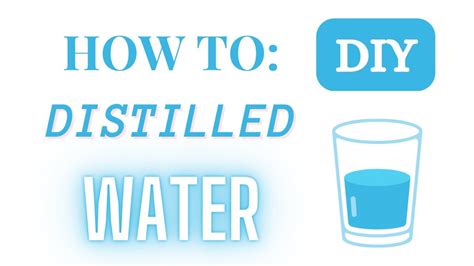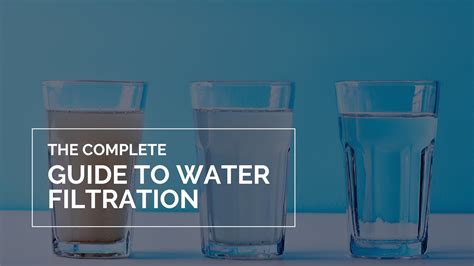Gas line plumbing is a crucial aspect of maintaining a safe and efficient home. Proper installation and maintenance of gas lines ensure that your appliances run smoothly and reduce the risk of potentially dangerous leaks. Identifying signs that you need a gas line plumber, such as unusual smells or malfunctioning appliances, can prevent costly damages and health hazards. Choosing a reliable gas line plumber involves considering factors like certifications, experience, and customer reviews. Additionally, understanding safety measures and regulations is essential for compliance and peace of mind. This guide provides an overview of costs and service expectations, helping you make informed decisions for your gas line plumbing needs.
Join lealhotel.com as we delve deeply into this topic.
1. Understanding Gas Line Plumbing: Basics of gas line systems and the importance of proper installation and maintenance.
Gas line systems are essential for the operation of numerous household appliances, such as stoves, water heaters, and furnaces. These systems consist of a network of pipes that deliver natural gas from the main supply to various appliances within the home. Correct installation of gas lines is crucial for the safe and efficient functioning of these appliances. Any mistakes made during installation can result in leaks, which present significant safety hazards, including fires and explosions.
Gas line maintenance is equally crucial. With time, pipes can corrode, joints may weaken, and valves can wear down, potentially leading to leaks and other problems. Regular inspections and maintenance by a skilled gas line plumber can help identify and address these issues before they worsen. Moreover, understanding the fundamentals of your gas line system can help you recognize early warning signs of trouble, such as unusual odors or hissing sounds near gas appliances. Proper installation and maintenance of gas lines not only guarantee the longevity and efficiency of your appliances but also safeguard your home and family from potential dangers.

2. Signs You Need a Gas Line Plumber: Common indicators of gas line issues, including leaks, unusual smells, and malfunctioning appliances.
It’s vital to be aware of the signs of gas line problems to ensure safety and avoid potential dangers. One of the most apparent signals is an unusual odor, often described as smelling like rotten eggs. This smell is deliberately added to natural gas to make leaks easy to detect. If you notice this odor, it could indicate a gas leak, requiring immediate professional attention.
Hissing or whistling noises emanating from gas lines or appliances are another indicator of a potential problem. These sounds could signal a leak or a malfunctioning valve. Furthermore, if your gas bills are rising without a noticeable increase in your gas consumption, this could be a sign of a slow leak.
Gas line problems can manifest in malfunctioning appliances. For instance, a stove that fails to ignite properly or a water heater that doesn’t heat effectively could indicate a gas line issue. These issues may stem from insufficient gas supply or faulty connections. Promptly addressing these symptoms with the assistance of a qualified gas line plumber is crucial to prevent more serious problems and ensure the safety and efficiency of your gas system.

3. Choosing the Right Gas Line Plumber: Criteria for selecting a reliable professional, such as certifications, experience, and customer reviews.
Choosing a trustworthy gas line plumber is essential for the safety and efficiency of your gas system. Begin by verifying their credentials. A qualified gas line plumber should possess the necessary certifications and be licensed to work on gas lines in your region, guaranteeing they have the appropriate training and skills.
Experience is another key factor. Look for a plumber with substantial experience in handling gas line installations and repairs. Experienced professionals are more likely to efficiently diagnose and resolve issues, minimizing potential risks.
Customer reviews and references offer a valuable window into a plumber’s reliability and workmanship. To assess their performance, explore online reviews and request references from past clients. This will allow you to gauge their customer satisfaction. A trustworthy plumber should boast positive feedback and readily provide references upon your request.
Last but not least, consider the plumber’s responsiveness and communication skills. A reliable plumber will be prompt in their replies, provide clear explanations, and maintain a professional demeanor throughout the process. This ensures a seamless and efficient experience for addressing your gas line requirements.

4. Safety Measures and Regulations: Overview of safety protocols and legal requirements for gas line plumbing work.
Safety is paramount in gas line plumbing to prevent accidents and ensure compliance with regulations. Gas line work must adhere to strict safety protocols and legal requirements to safeguard both property and people.
Firstly, gas line plumbers must follow local building codes and regulations, which are designed to ensure safe installation and maintenance practices. These codes often dictate the materials and methods used, as well as the necessary inspections.
Before starting work, plumbers should conduct thorough safety assessments, including checking for potential hazards like outdated or damaged pipes. They must also use appropriate personal protective equipment (PPE), such as gloves and safety glasses, to protect themselves during the job.
Proper ventilation is crucial when working with gas lines to prevent the buildup of harmful gases. Additionally, plumbers should be knowledgeable about emergency procedures, including how to shut off the gas supply in case of a leak.
Adhering to these safety measures and regulations not only ensures compliance but also helps prevent dangerous incidents, protecting both your home and the people in it.

5. Cost and Service Expectations: Typical costs associated with gas line services and what to expect during the plumbing process.
Knowing the costs and what to expect from gas line services is essential for budgeting and preparing for the plumbing process. The typical price for gas line services fluctuates depending on the job’s complexity, the amount of pipework involved, and local labor costs. Generally, you can anticipate paying between $100 and $200 per hour for a professional plumber, with extra expenses for materials and any necessary permits.
Minor repairs, like fixing a small leak or replacing a valve, typically come with a lower price tag than larger projects involving the installation or relocation of gas lines. Major projects, however, can cost anywhere from $500 to $2,000 or more, depending on the complexity of the work required.
Before starting any plumbing work, the plumber will assess the situation to understand the problem and provide a cost estimate. This process usually includes turning off the gas supply, repairing or replacing the required parts, and then testing everything to ensure it’s working properly.
You can expect the plumber to clean up their work area and provide a final inspection to verify compliance with all safety standards. Open and clear communication regarding costs and expectations will help guarantee a seamless and positive service experience.

Ensuring the safety and efficiency of your home’s gas line system requires careful attention to installation, maintenance, and timely repairs. By recognizing the signs of gas line issues, selecting a qualified plumber, and understanding safety regulations and costs, you can protect your home and family. Stay proactive and informed to keep your gas system in optimal condition.
lealhotel.com